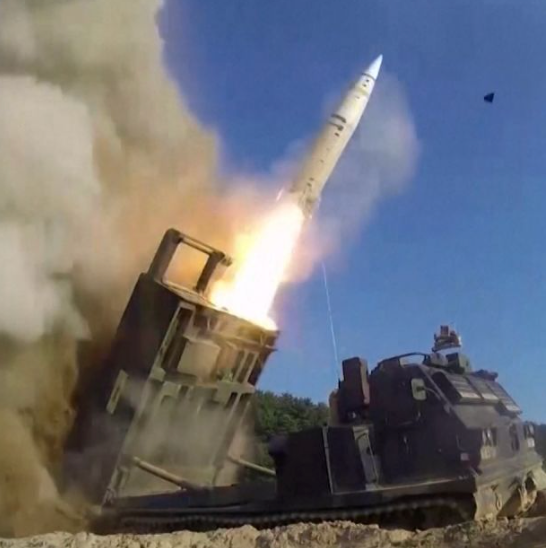
U.S. Extends Support to Ukraine with Long-Range Missiles Amid Rising Tensions
The ongoing conflict between Ukraine and Russia has taken a new turn as the United States has decided to provide Ukraine with long-range weapons, a move aimed at bolstering Ukraine's defense and shifting the balance of the conflict. This development reflects the growing international support for Ukraine as it continues to resist Russian aggression.
A Game-Changing Development
The provision of these long-range missiles marks a significant shift in the type of aid the U.S. is willing to offer Ukraine. Previously, assistance was focused on short-range weapons, logistical support, and economic aid. With this new step, the U.S. is demonstrating a more direct commitment to Ukraine's ability to strike back effectively, even at targets deep within enemy territory.
These weapons will allow Ukrainian forces to engage Russian positions and infrastructure with greater precision and from safer distances. This could be a pivotal development in the conflict, potentially altering how both sides plan their strategies moving forward.
Biden Administration's Decision
President Joe Biden’s administration has been under increasing pressure to provide Ukraine with advanced weaponry to counter Russian advancements. By sending these long-range missiles, the U.S. aims to not only support Ukraine militarily but also send a strong message to Russia about the international community's resolve.
While this decision has been met with approval by many allies, it has also raised questions about potential escalation. Critics warn that providing Ukraine with the capability to strike deeper into Russian territory could provoke a stronger response from Moscow, leading to heightened tensions and risks of broader conflict.
Impact on the War and Global Politics
The introduction of long-range missiles could dramatically influence the conflict's dynamics. For Ukraine, this is an opportunity to disrupt Russian supply lines, target command centers, and weaken the logistical capabilities of the invading forces. However, it also raises the stakes in an already volatile situation.
Russia has condemned the decision, viewing it as another sign of Western nations siding against it. This development adds to the existing strain between NATO countries and Russia, potentially complicating diplomatic efforts for a peaceful resolution.
The Humanitarian Aspect
As the war continues, millions of Ukrainians are enduring immense hardship. Cities remain under siege, infrastructure has been destroyed, and the humanitarian crisis deepens. International support, including military aid, aims to empower Ukraine to defend its sovereignty while also protecting its citizens from ongoing violence.
However, critics argue that an increase in weapon supplies might prolong the conflict, leading to more casualties and suffering. Balancing military support with diplomatic efforts remains a complex challenge for global leaders.
What This Means for the Future
The decision to send long-range missiles to Ukraine highlights the broader geopolitical implications of the conflict. It underscores the U.S.'s commitment to upholding international law and supporting allies in need. At the same time, it raises important questions about the risks of escalation and the potential for broader regional instability.
As the conflict evolves, the world will be closely watching how these new weapons influence the battlefield. For Ukraine, this support represents hope and a stronger chance of reclaiming its territories. For the global community, it serves as a reminder of the high stakes involved in the fight for democracy and sovereignty.




